Understanding the Journey of Recovery
Facing a child’s drug dependency can be overwhelming and heart-wrenching. Parents often experience a mixture of emotions ranging from anger to guilt, along with a desperate urge to do anything to help. Navigating this complex journey requires a delicate balance of support, education, and personal boundaries. This article provides practical steps and insights for parents committed to helping their son overcome addiction.
Recognizing Signs and Symptoms of Dependence
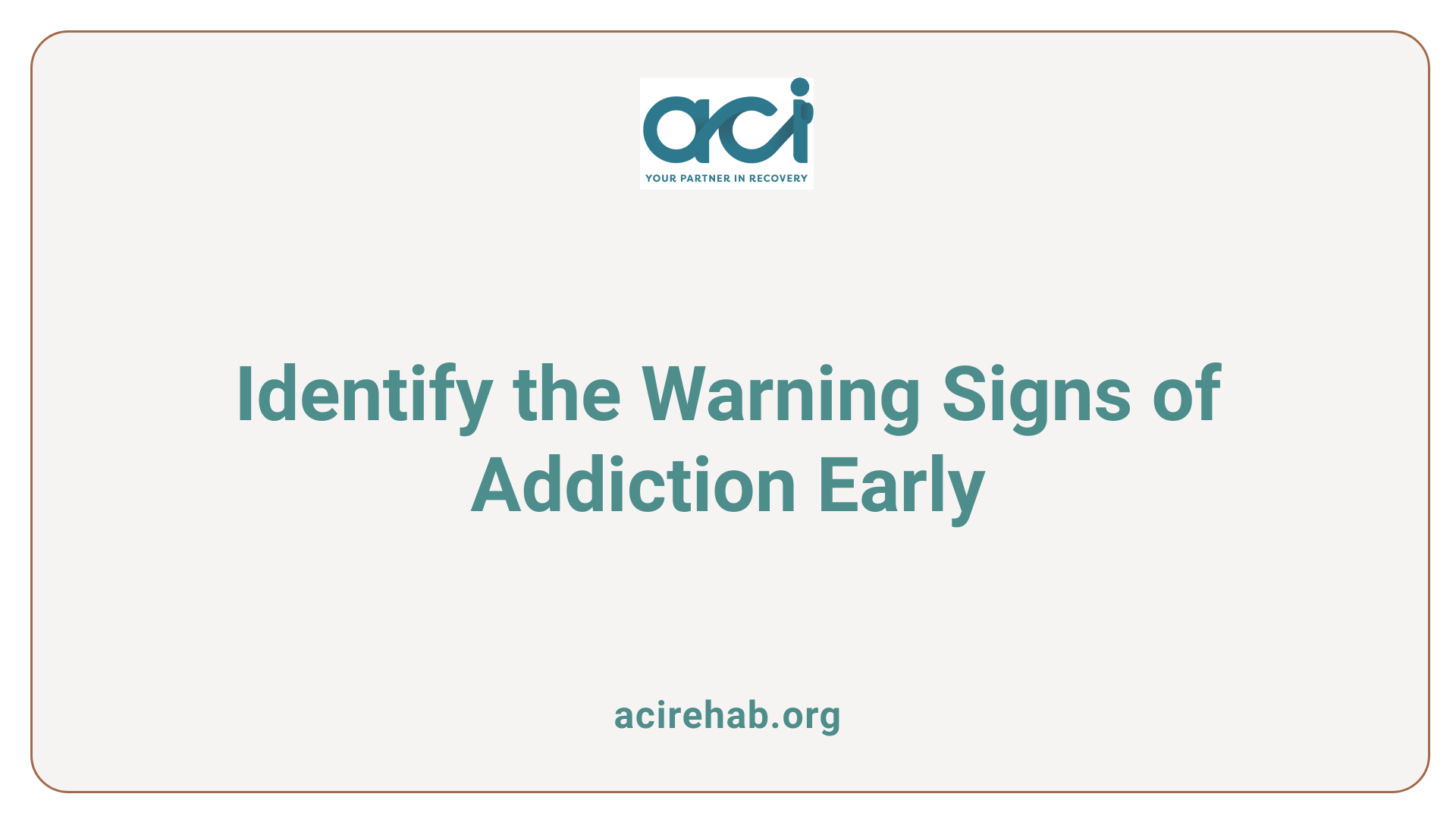
Signs of Addiction
Identifying signs of addiction can be a crucial first step for parents noticing changes in their child’s behavior. Key indicators include:
- Inability to control substance use: Many individuals find it challenging to limit the amounts or frequency of their substance use.
- Preoccupation with substances: Spending significant time obtaining, using, or recovering from drugs or alcohol often signals a deeper issue.
- Social and relational problems: Continued use despite negative effects on personal relationships can indicate dependency.
- Neglect of responsibilities: Missing important obligations at work, school, or home may also reflect addiction.
- Changes in behavior: Look for signs such as mood swings, secretive behavior, and neglect of personal hygiene.
Understanding Addiction as a Mental Health Disorder
Addiction is widely recognized as a complex mental health disorder. It alters the brain’s reward system and motivation, often requiring thorough assessments for effective treatment. Understanding this can help parents approach their child’s addiction not just as a behavioral issue but as a medical condition needing professional support.
How Can I Help My Child Struggling with Drug Addiction?
To support your child struggling with drug addiction, start by engaging in compassionate conversations that promote openness. Encourage them to seek professional help and be aware of the signs of addiction, such as using substances in larger quantities than intended and neglecting responsibilities. Additionally, providing information about rehabilitation options and advocating for their recovery while respecting their autonomy can foster a constructive environment for healing. Remember to prioritize your own well-being, as managing a loved one’s addiction can lead to caregiver stress.
Initial Steps in Assisting Your Child
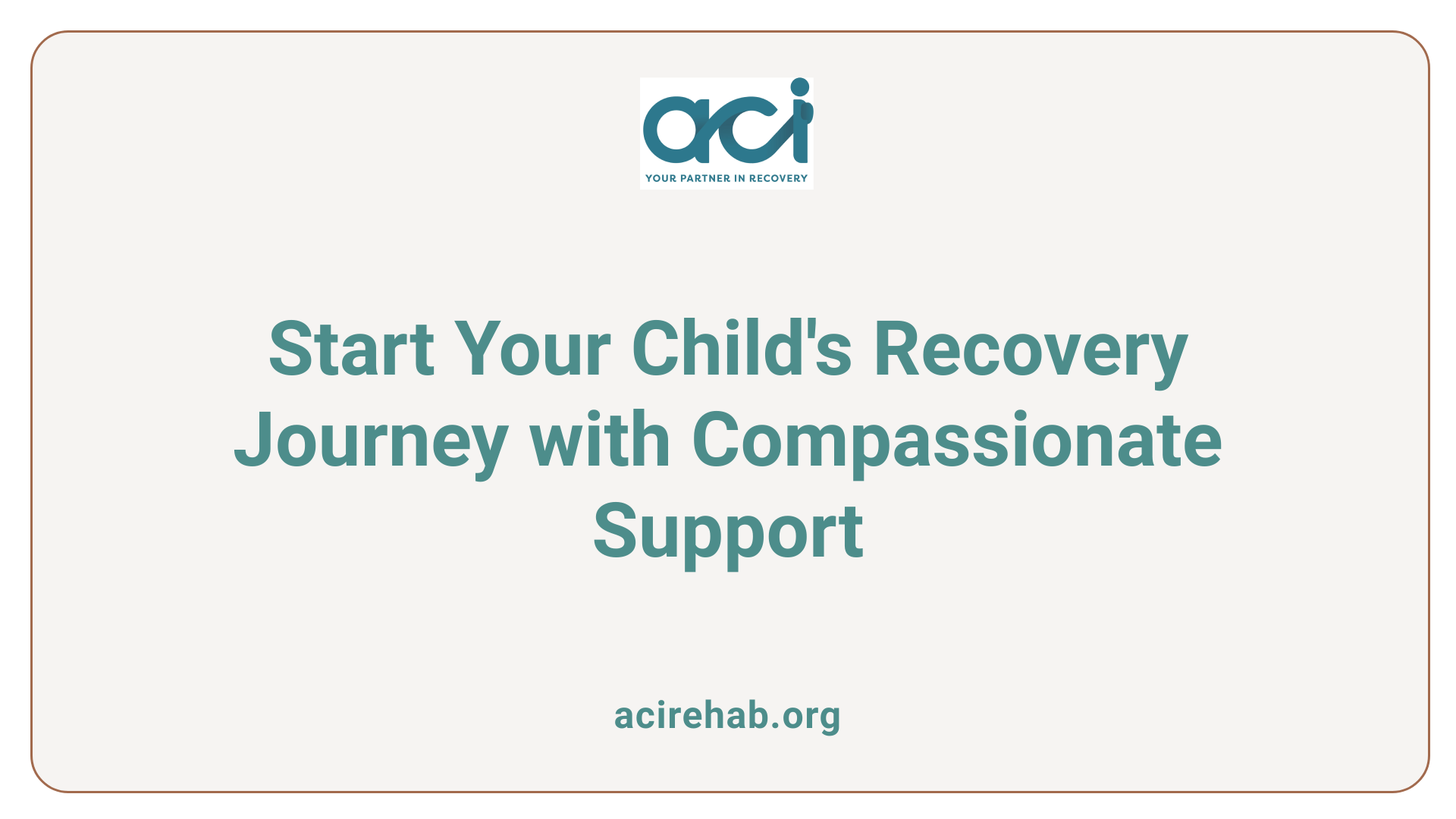
Starting a supportive conversation
When discussing substance use with your adult child, it’s crucial to create a safe and private environment. Begin the conversation by expressing genuine concern and acknowledging their struggles. Avoid judgment; approach the discussion with compassion, as understanding often fosters openness. Listening actively can provide them the space to express their feelings without fear of reprisal.
Researching treatment options
Educating yourself about addiction and treatment options is vital. Prior to your discussion, gather information on local treatment facilities, support groups, and rehabilitation programs. Understand your child’s insurance coverage concerning treatment to facilitate these conversations. Encouraging them to speak with healthcare professionals may also aid in guiding them toward the support they need, making the step towards treatment feel less daunting.
Prioritizing self-care
Engaging with a loved one struggling with addiction can be emotionally taxing. It’s essential to prioritize your own well-being. Practice self-care by maintaining a healthy routine, including proper nutrition and exercise. Consider joining support groups like Al-Anon or Nar-Anon to connect with others who share similar experiences. This not only strengthens your resilience to support your child effectively but also offers you a community of understanding and empathy.
| Aspect | Steps Involved | Importance |
|---|---|---|
| Conversation Approach | Create a private setting, express concern, listen actively | Fosters an open dialogue, reducing defensiveness |
| Research Treatment | Gather information on rehab, check insurance options | Provides clarity and options for seeking help |
| Self-Care Practices | Exercise, join support groups, maintain healthy habits | Enhances your ability to support your child emotionally |
Exploring Intervention Strategies
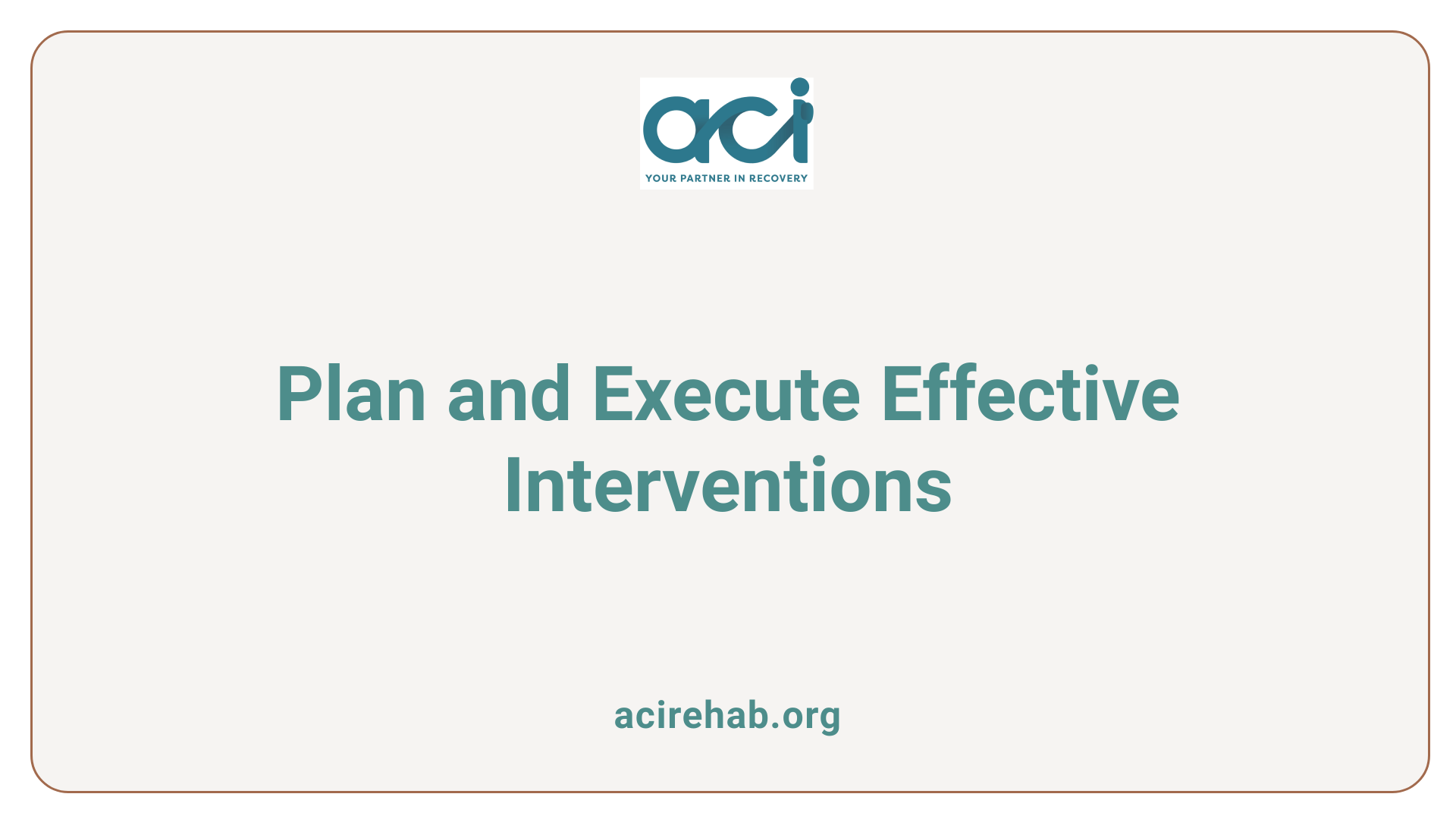
Steps for a successful intervention
Conducting an intervention for a family member with a substance use disorder requires careful planning and empathy. Here are the key steps to ensure the process is as effective as possible:
- Gather Information: Start by collecting detailed information about your loved one’s addiction. This includes understanding the substances involved, their behavior changes, and the impact on family dynamics.
- Create an Intervention Team: Assemble a group of trusted friends and family members. Involving a professional, such as an addiction counselor, can provide expert guidance and ensure the process remains constructive.
- Set Desired Outcomes: Clearly define what you hope to achieve through the intervention. This may include the individual agreeing to enter a specific treatment program.
- Prepare Your Messages: Each team member should prepare a loving and supportive statement to express concerns. Stick to facts and personal feelings rather than accusations.
- Choose the Right Time and Place: Schedule the intervention when the loved one is sober and in a comfortable, private setting to minimize defensiveness.
- Conduct the Intervention: During the meeting, present a united front. Share stories of concern, emphasizing that the goal is to support the person in seeking help.
- Provide Resources: Offer concrete options for treatment, including rehab centers and support networks.
- Follow Up: After the intervention, stay involved and supportive, reinforcing your willingness to help as the individual navigates their recovery journey.
The role of professionals in interventions
Engaging professionals in interventions is crucial, especially in high-risk situations. Addiction specialists can help design the intervention strategy, ensuring it aligns with best practices and reduces the chances of emotional escalation. They can also facilitate the intervention, guiding the conversation and providing a calming presence.
Additionally, professionals can assist in identifying suitable treatment options and tailor the approach based on the individual’s unique circumstances. Their expertise ensures that the intervention focuses not just on confronting the addiction but also on fostering a supportive environment conducive to recovery.
In conclusion, integrating professional help into the intervention process enriches the experience, ultimately improving the likelihood of a positive outcome.
Supporting Recovery Through Healthy Boundaries
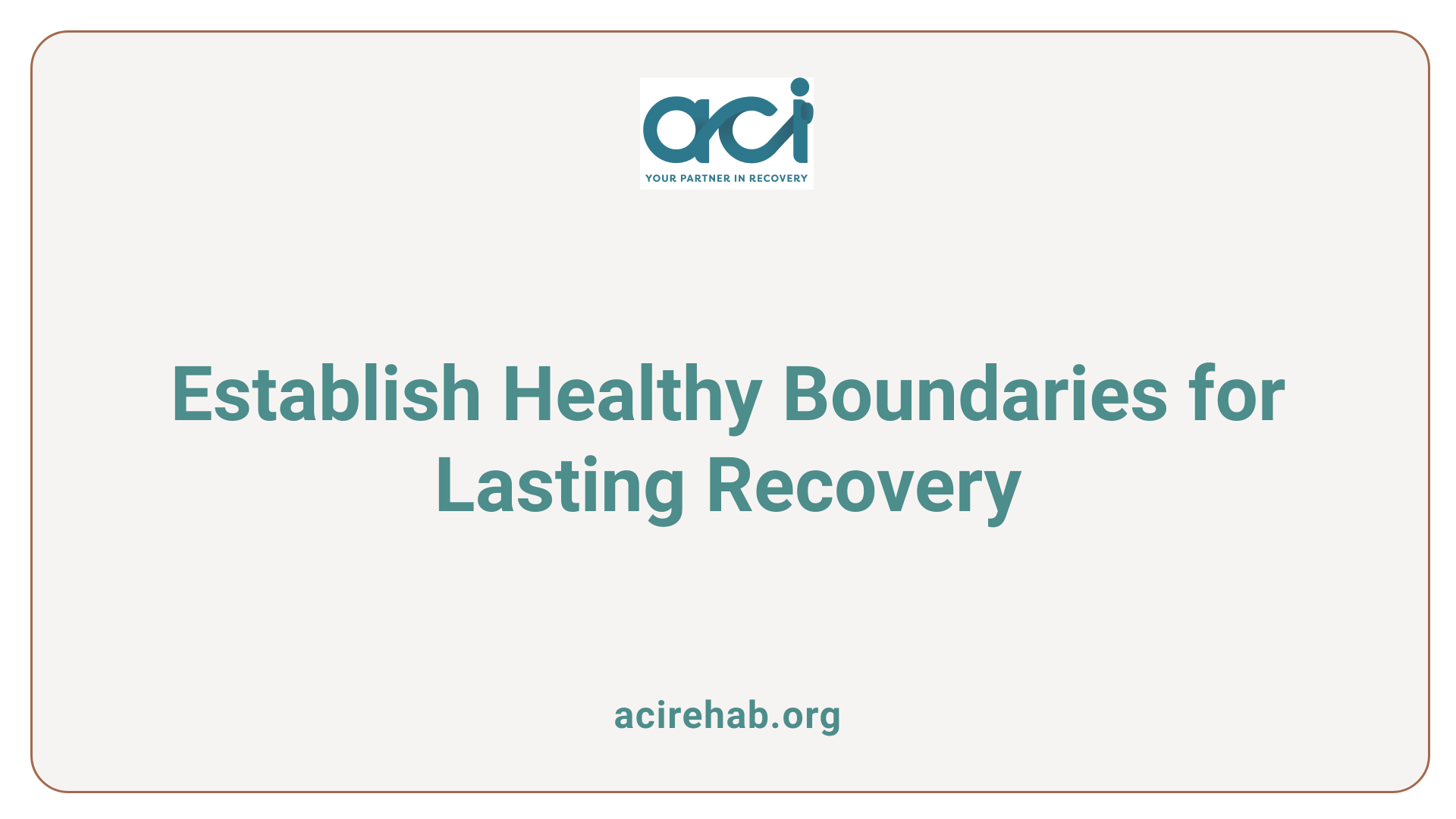
Establishing Boundaries to Prevent Enabling
Creating healthy boundaries is essential for both parents and their children when navigating addiction recovery. Parents must differentiate between helping and enabling behaviors, as the latter can inadvertently support a child’s addiction. Enabling can manifest through actions like providing financial support, making excuses for the child’s behavior, or constantly stepping in to resolve crises.
To effectively set boundaries, parents should:
- Refuse financial assistance that directly enables substance use, like giving money for drugs or alcohol.
- Avoid making excuses for their child’s behavior, which can prevent them from facing the consequences of their actions.
- Encourage independence, allowing children to experience the natural ramifications of their choices, thus promoting personal responsibility.
Promoting Responsibility and Independence
Encouraging responsibility is a critical aspect of supporting recovery. Parents should instill a sense of accountability by engaging in open discussions about addiction and its consequences. This can be achieved by:
- Setting clear expectations for behavior while maintaining open lines of communication.
- Encouraging self-sufficiency, urging the child to seek help and make their own decisions regarding treatment and recovery.
- Focusing on strengths rather than weaknesses, helping the child recognize their capacities while supporting positive choices.
By establishing healthy boundaries and promoting independence, parents can play a pivotal role in their child’s recovery journey, fostering an environment conducive to healing.
Utilizing Professional Help and Resources
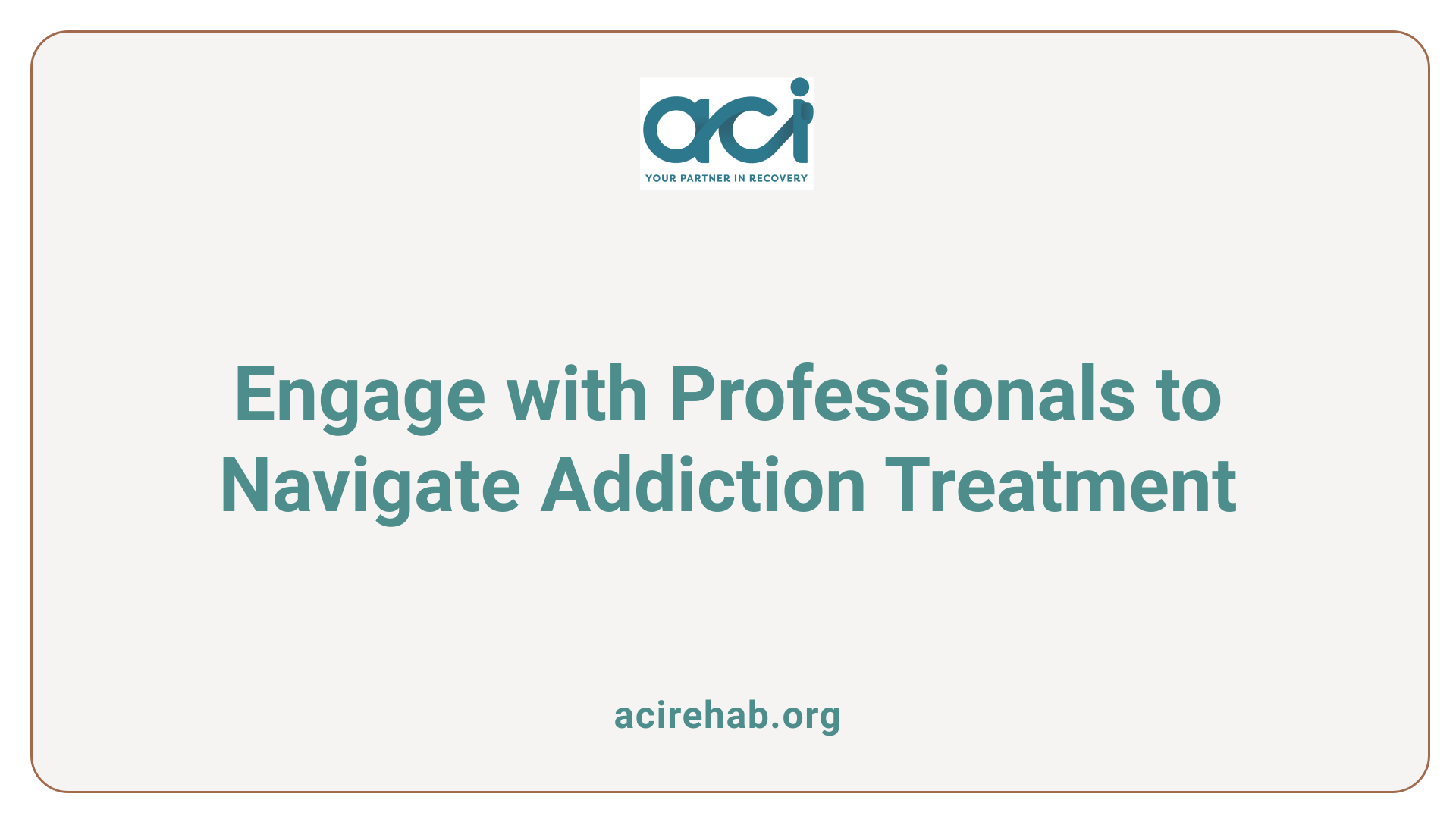
Importance of Professional Treatment
When dealing with a loved one struggling with addiction, seeking professional help is essential. Addiction is a complex brain disease that often requires evidence-based treatments and guidance from trained specialists. Professionals can provide accurate assessments, tailored treatment plans, and support through various stages of recovery. Programs may include inpatient rehabilitation, which often combines detoxification with therapy and community support like Alcoholics Anonymous.
Parents should recognize that while their support is crucial, they cannot single-handedly ‘fix’ their child’s addiction. It’s vital for the person struggling with addiction to recognize their need for change and be willing to seek help.
Effective Communication with Healthcare Providers
Clear and compassionate communication with healthcare providers is fundamental in addressing addiction. Parents and individuals must comfortably discuss substance use patterns and co-occurring mental health issues with professionals. This open dialogue helps clinicians create more effective treatment plans tailored to the individual’s needs.
Additionally, parents can assist their children in preparing for appointments by researching questions to ask professionals about treatment options, costs, and support systems available. Developing this communication helps children feel supported and understood, ultimately fostering a better healing environment.
Seeking Support Systems and Self-care
How can families cope with having a loved one addicted to drugs?
Families dealing with a loved one’s drug addiction can benefit from understanding addiction as a complex disease. This involves recognizing the signs of addiction while avoiding behaviors that could enable substance abuse or promote denial. Encouraging heartfelt conversations when the loved one is sober can foster a constructive dialogue around seeking help.
Support groups like Al-Anon and Nar-Anon play a vital role in assisting families. These groups provide a safe environment to share experiences and learn about self-care techniques that can ease the emotional burden of dealing with a loved one’s addiction. Attending these groups allows family members to connect with others who understand their challenges, illustrating the importance of collective experiences in recovery.
Additionally, resources such as SAMHSA’s National Helpline offer direct access to treatment options and counseling, helping families find professional support that can aid in repairing relationships. Engaging in these supportive networks is crucial not only for understanding the addiction but also for emotional sustenance.
Practicing self-care techniques
Taking care of oneself is fundamental for parents supporting a child with addiction. Self-care techniques may include regular exercise, healthy eating, and adequate sleep, which can help manage stress levels. Parents should also engage in activities like meditation, journaling, or joining support groups to process their emotions.
By prioritizing their physical and emotional health, parents can maintain the strength needed to support their loved ones effectively. This balanced approach can lead to better communication, increased resilience, and a more positive family atmosphere as they navigate the challenges posed by addiction.
Understanding the Disease of Addiction
Addiction as a Brain Disease
Understanding addiction as a mental health disorder is crucial for both those affected and their families. Addiction alters the brain’s reward system and impacts motivation, leading to compulsive substance-seeking behaviors despite harmful consequences. This biological aspect emphasizes that addiction is not merely a failure of willpower but a complex disease that requires professional intervention for effective treatment.
Impact on Family Dynamics
Addiction is often referred to as a "family disease" due to the extensive impact it has on family members. Parents, siblings, and close friends may unknowingly engage in enabling behaviors. These can include making excuses, covering up, or financial support, inadvertently preventing the person struggling with addiction from facing the reality of their situation. This dynamic not only hinders recovery but can lead to detrimental effects on the familial relationships.
The distress caused by a loved one’s addiction can foster feelings of guilt, frustration, and helplessness among family members, complicating their emotional health. For instance, children of addicted parents may assume caregiving roles, impacting their own development. Understanding these dynamics is essential in addressing the collective needs for healing and recovery, where open communication and professional guidance are pivotal.
| Topic | Explanation | Example Use |
|---|---|---|
| Brain Disease | Addiction alters brain function affecting impulse control and decision-making | Addiction is not a moral failing but a treatable illness |
| Family Dynamics | Addiction influences family patterns, often leading to enabling behaviors | Support groups can help family members understand their role |
Role of Communication in Recovery
Creating Open Dialogue
Establishing an open line of communication is pivotal when navigating a loved one’s battle with addiction. Parents should seek to create a safe environment where their child feels comfortable discussing their struggles without fear of judgment. This can be initiated by being approachable and showing genuine concern for their well-being rather than resorting to blame or anger.
Timing is essential; choose moments when your child is sober and calm. Directly state your concerns and listen actively to their feelings. This approach not only fosters trust but also encourages your child to open up about their experiences with substance use. Avoiding confrontational tones can greatly increase the likelihood of productive conversations.
Encouraging Positive Behaviors
While communication is key, it’s also important to actively encourage positive behaviors that support recovery. Acknowledge your child’s strengths and celebrate small achievements along their journey. By focusing on progress rather than setbacks, parents can help cultivate a more optimistic atmosphere.
Encouraging involvement in healthy activities like therapy or support groups can also promote a sense of community and accountability. Parents should model healthy coping mechanisms and hobbies, providing alternatives that can replace substance use.
By combining open communication with positive reinforcement, parents can significantly contribute to their child’s recovery process, paving the way for a healthier relationship and lasting change.
Navigating the Path to Treatment
Encouraging treatment decisions
Helping a loved one with substance use issues involves delicately navigating conversations around seeking treatment. Begin by choosing a calm and appropriate time for these discussions. Express concern genuinely and allow them to share their feelings without fear of judgment. Your support can empower them to consider professional help, ideally by explaining that seeking treatment is a sign of strength, not weakness.
When they are open to the idea of treatment, providing researched information on local rehabilitation options can be invaluable. This includes details about outpatient services, inpatient programs, and support groups. Encouraging them to engage with healthcare professionals can also help in getting a thorough assessment and tailored treatment program.
Aftercare planning
After initial treatment, robust aftercare planning is crucial for long-term recovery. Encourage your loved one to participate in group settings such as Alcoholics Anonymous (AA) or Narcotics Anonymous (NA). Additionally, help them develop coping strategies for stress, such as meditation or engaging in hobbies.
Family involvement in aftercare is equally important. Attend family therapy sessions together to strengthen communication and understanding. Ensure you remain a source of support, creating an environment conducive to their ongoing recovery journey.
Moving Forward with Hope and Resilience
While the road to recovery from drug dependence is often filled with challenges, it is also a journey of healing and growth, both for your son and your family. By providing a supportive environment grounded in love, clear boundaries, and informed guidance, you can all work towards a healthier future. Remember that seeking professional help and prioritizing self-care are crucial, as they enable you to offer strength and stability in times of uncertainty. Each step taken forward is a step towards hope, resilience, and recovery.
References
- SAMHSA’s National Helpline
- Guide for Parents: Helping Your Child with Substance Abuse
- 7 Truths About My Son’s Addiction That Took 5 Years To Learn
- How To Talk To A Drug Addicted Son – Heal Treatment Centers
- Enabling vs. Helping: How to Stop Catering to your Adult Child’s …
- Guide for Parents: Helping Your Child With Alcoholism or Drug Abuse
- When Do I Give Up on My Drug Addict Son? | Get Help Today
- 4 Ways to Help Your Addicted Adult Child – Washburn House
- How Do I Help My Son or Daughter With Drug Addiction?

